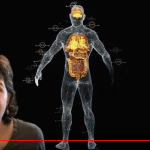[Originally published in the CTF Newsletter, Nov. 2022]
William M. Ramsay (1851–1939) was a renowned Scottish archaeologist. By the end of his life, he had been knighted for his distinguished scholarship, granted three honorary fellowships from Oxford colleges, awarded nine honorary doctorates from British and North American universities, and inducted as an honorary member into nearly every archaeological and historical research association.
What allowed him to attain such a level of achievement? His willingness to follow evidence and truth wherever they might lead.
At the beginning of his studies, Ramsay was skeptical of any allusions to historical and geographical accuracy regarding the Bible since he had been educated in the belief that it was filled with errors. Despite this indoctrination, he wrote,
It did not lie then in my line of life to investigate the subject minutely; but more recently I found myself often brought in contact with the book of Acts as an authority for the topography, antiquities, and society of Asia Minor. It was gradually borne in upon me that in various details the narrative showed marvellous truth.1
The Scriptures led him to fantastic archaeological discoveries that ultimately convinced him of the Bible’s divine inspiration, becoming one of the greatest defenders of the inerrancy of Scripture. Yet, the opponents of God still seek to find any possible mistake in the incredible history recorded by Luke, believing they have found such mistakes in Luke 2.
They claim Luke is in great error (and therefore, the Bible is not the inspired Word of God) as there was no empire-wide tax at the time of Jesus’ birth and Quirinius was not governor until several years later.
Are their claims true?
The Bible says in II Timothy 3:16 that every word of the Bible is directly from the mouth of God, and Jesus said in Matthew 5:18 that the Bible is trustworthy down to the punctuation marks (every jot and tittle). However, Jesus never asked us to have blind faith but to search and study, for He knows we will find the Bible to be the inerrant, inspired Word of God.2
In dealing with Luke 2, here is what we find regarding Luke’s accuracy:
- The critics are right in that there was not an empire-wide tax. It was a census or registration, which is what Luke says.
- The word used in Luke 2:1-3 is apographé — a registration or enrollment3
- Hence, most modern translations now read “census,” “register,” or “enroll.”
- The empire-wide census/registration/enrollment has been preserved in history.
- It was an empire-wide registration of everyone’s oath of allegiance as part of the celebration when the Senate granted Augustus the title of Pater Patriae (“Father of the Fatherland”) for his 25th anniversary as emperor.4
- The oath demanded of the province of Paphlagonia has been preserved: “I swear by Jupiter, earth, sun, by all the gods and goddesses, and by Augustus himself, that I will be loyal to Caesar Augustus and to his children and descendants all my life in word, in deed, and in thought…”5
- Jewish historian Josephus recorded an incident regarding Caesar’s decree: “For there was a certain sect of men that were Jews… These are those that are called the sect of the Pharisees: who are in a capacity of greatly opposing Kings. A cunning sect they were; and soon elevated to a pitch of open fighting, and doing mischief. Accordingly when all the people of the Jews gave assurance of their good will to Caesar, and to the King’s government; these very men did not swear: being above six thousand. And when the King imposed a fine upon them, Pheroras’s wife paid their fine for them.”6
- There are several competing arguments for Luke’s accuracy regarding Quirinius’s governorship.
- Luke is filling a gap in recorded governorships of Syria.7
- The decree and enrollment were at the time of Jesus’ birth, but the ensuing tax took place 7 or 8 years later when Quirinius was governor.8
- Quirinius oversaw the census at Jesus’s birth but wasn’t actually governor yet, in the same way as saying President George Washington fought in the Revolutionary War, even though he didn’t become President until after the war.9
- Quirinius was granted a military governorship over Syria while fighting the Hasmonadensians at the same time Saturninus was governor, marking two governorships for Quirinius, the first being at the time of Jesus’ birth.10
- Quirinius was the procurator while Varus was governor at the time of Jesus’ birth, making him closely connected to the office he would one day assume.11
- The proper translation of Luke 2:2 should read, “This census took place before the time when Quirinius was governor of Syria.” The Greek word translated “first” (prótos) can be translated “before,” as in John 1:15, 30.12
There are numerous, solid answers to the skeptics’ attacks. Luke, in all his history, has been validated. The Word of God, as always, stands true! Thus, Sir William Ramsay concluded:13
The strange situation in which He was born was caused by an order of Augustus, a world-wide order expressing a vast force that moves through many centuries of history and always makes for slavery. The worse side of Imperial policy, as embodied in that order, drove Mary from Nazareth to Bethlehem.
And what was the result? Only the fulfillment of the ancient truth and prophecy that in Bethlehem, the humble village which was the centre of old Hebrew tradition, there must be born, when the fulness of the time was come, the King of the Jews and the Saviour of the world.
Footnotes:
- Ramsay, William M. St. Paul the Traveller and the Roman Citizen. G.P. Putnam’s Sons, NY: 1898, p. 8.
- John 3:12, see also Proverbs 30:5, John 5:39, Acts 17:11, Romans 15:4, II Timothy 2:15, II Peter 1:21
- Strong’s Exhaustive Concordance and Thayer’s Greek Lexicon #582 and #583.
- Imperator Caesar Augustus, The Deeds of Divine Augustus, A.D. 14, #35.
Paulus Orosius, Historiae Adversus Paganos, A.D. 416-417, VI:22 & VII:2-3. “pater patriae” Encyclopedia Britannica, britannica.com, accessed 11/16/22. - Lewis, Naphtali and Meyer Reinhold. Roman Civilization, Vol. 2: The Empire. Harper & Row, NY: 1966, pp. 34-5.
- Josephus, Titus Flavius. Antiquities of the Jews. A.D. 93-94, XVII.2.4.
- Commentators Charles John Ellicott and B.W. Johnson’s position.
- Commentators Joseph Benson, Robert Jamieson, Andrew Fausset, and David Brown’s position.
- Commentators Albert Barnes and John Gill’s position.
- Sir William Ramsay’s and commentators J.W. McGarvey, Philip Pendleton, and Paul T. Butler’s position.
- Commentator R.C. Foster’s position.
- Commentators Harold Hoehner, N.T. Wright, F.F. Bruce, Ben Witherington, and I. Howard Marshall’s position.
- Ramsay, Sir W.M. The Bearing of Recent Discovery on the Trustworthiness of the New Testament. Hodder and Stoughton, NY: 1915, p. vi.






